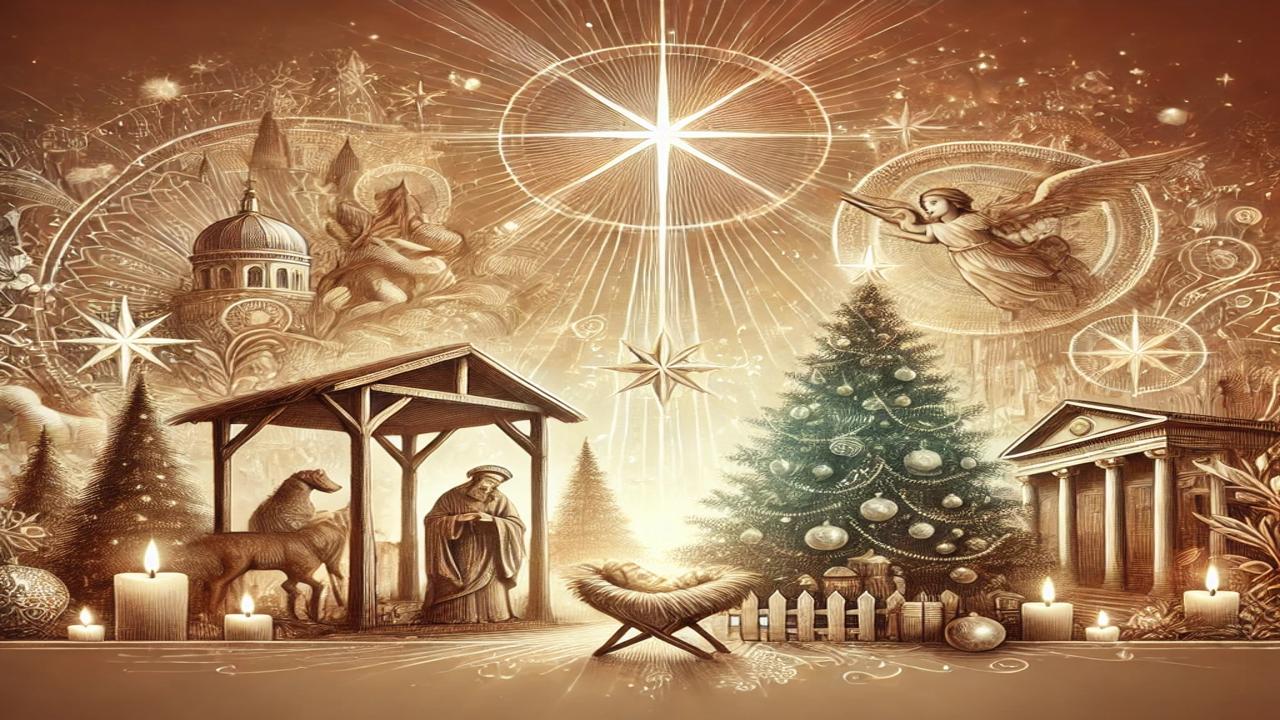History and Origins of Christmas: Its Place in Christianity and Culture

Origins of Christmas in Christianity
Christmas is a holiday in Christianity that celebrates the birth of Jesus Christ. Jesus is regarded by Christians as the Son of God, and his birth is seen as a pivotal moment for humanity. Traditionally, Christmas is celebrated on December 25th. However, the exact date of Jesus' birth is not definitively known. Many historians suggest that December 25th was chosen as the celebration day, as it coincided with ancient pagan traditions and winter solstice celebrations that were transformed by Christianity. It was first in the 4th century, when Roman Emperor Constantine made Christianity the official religion, that Christmas began to gain historical significance. Constantine's era marked the period in which Christianity began to spread across the Roman Empire, and the celebration of this holiday gained importance. During this time, Christmas became not only a religious holiday but also a societal and cultural event.
Initially, the celebration of Christmas was mainly confined to religious ceremonies and took place in church worship services. Over time, however, these celebrations spread to different sections of society and became more fun and social. In addition to its religious significance, Christmas became an important social event where people came together to celebrate joy, sharing, and brotherhood.
Cultural Evolution of Christmas
The way Christmas is celebrated has been shaped over time by various cultural influences. In the Middle Ages, Christmas celebrations were generally confined to church rituals and took place in a religious atmosphere. During this time, celebrations in villages and towns were mainly social events shaped by the participation of the people. However, by the end of the Renaissance, especially in Europe, Christmas celebrations began to take on a more familial and social dimension. People in this period began to celebrate with more joy, entertainment, and feasts. Gradually, Christmas ceased to be only a religious holiday and evolved into a social event.
Over time, Christmas has been celebrated not only in the Christian world but across the globe, with different cultures blending their traditions into this holiday. For instance, decorating Christmas trees in Germany, Christmas dinner traditions in England, and singing Christmas carols in France are rituals that have been embraced by people from different villages and cities around the world. Today, Christmas has become a celebration period that includes cultural elements such as spending time with family, giving gifts, and preparing meals, extending far beyond just a religious holiday.
Christmas and Pagan Celebrations
Christmas also has deep connections with many ancient pagan celebrations. Particularly, winter solstice celebrations historically coincide with Christmas. The winter solstice, the shortest day of the year, held great significance for ancient societies, as it marked the return of light and the beginning of longer days. In the Roman Empire, a festival called Saturnalia was celebrated during this time with great festivities, and customs such as giving gifts and organizing festive meals emerged. Similarly, in Northern Europe, the Yule festival celebrated the rebirth of the sun and the end of winter.
Christianity gradually incorporated these ancient pagan rituals, shaping Christmas. Particularly, the celebrations marking the return of light in the middle of winter reinforced the theme of "light" that symbolizes the birth of Jesus. These major social celebrations before the New Year strengthened the social aspect of Christmas and gradually became traditions.
Conclusion
Christmas is a holiday with a multifaceted historical background. Shaped by the combination of Christianity, pagan traditions, and societal and cultural elements, Christmas has transformed from a purely religious celebration into a festival of social solidarity, happiness, and love. Celebrated on December 25th each year, this special day brings millions of people together around the world, spreading messages of love and tolerance. Thanks to the evolving traditions and cultural influences, Christmas has become a universal celebration accepted by different beliefs and cultures.










